According to Investopedia: “digital nomads are people who are location independent and use technology to perform their job.”
A couple of weeks ago I’ve met Mel and Armando, an American-Italian couple who have been traveling the world since 2012 in their van with a charming name ‘Mork’. When they came to Casablanca, I had to seize the opportunity and ask them several questions that many of my friends have been googling for months.
Are you sick and tired of your 9 to 5 job and are thinking of quitting it? You’re fed up with sitting in an office and having a sore butt? Thinking of changing something in your life, moving your activity online, and maybe becoming location independent? If you’ve nodded your head and answered ‘yes’ to at least one question- you should definitely read on!
Ladies and gentleman, backpackers, office workers, business owners, bloggers, teachers, freelancers, students, travelers, let me introduce you to Westfalia Digital Nomads!
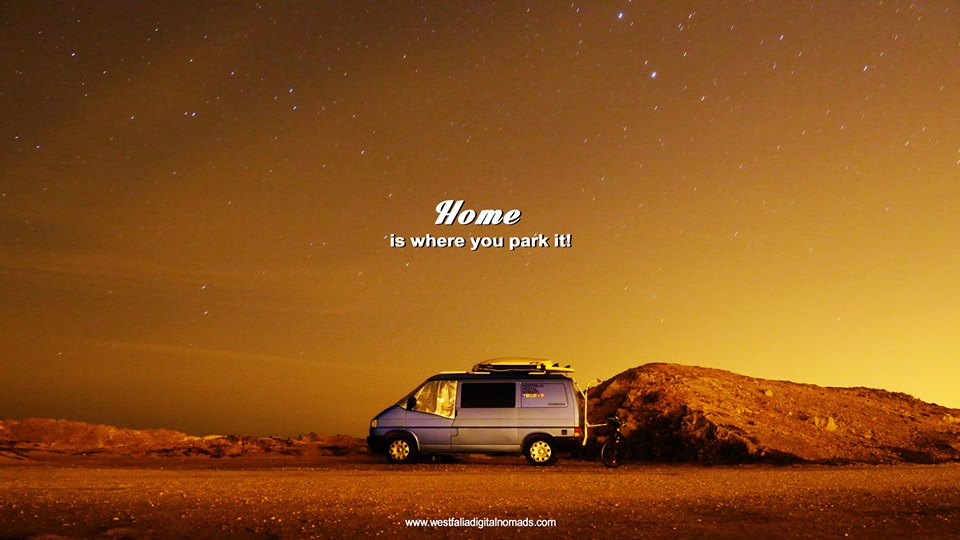
Why did you decide to become location independent? Was it a spontaneous decision, or a well-thought one?
We didn’t decide to become location independent, really. We were together, both free to do what we liked for the first time in years and had the same priority: travel as much as possible. Our follow-up question became, ‘Yeah, great idea. But how?’ We both had skills we could transfer to online work, so we decided working as we traveled to pay for our adventures made a lot of sense.
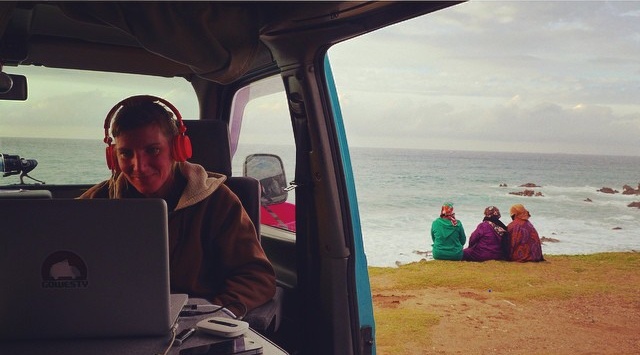
How can one become a digital nomad, how should they start?
If there was a magic formula or a simple ‘nomad’ injection, I think everyone would do it. Ha. Unfortunately, it’s not an overnight process. Sure, you can take so-called ‘classes’ and pay loads of money- but you can also find the same information, for free, on Google. If we were to give advice for becoming a digital nomad, it’d be broken down into chunks:
- Do your research. What sort of job would you like to do remotely? Any experience? How much work and how much competition is there in the field? Armando is a film director; he looked up jobs with film. He found work shooting footage; editing; and now creating motion graphics.
- Try it before you quit your day job. No reason to lose what you have if you don’t like what you replace it with.
- Be persistent and patient. You’ll have to fill out a lot of the same info for each platform; you’ll have to have a stellar CV ready if you’re answering ads; and you’ll have to have tons of quality content that’s never been used before if you want to sell as you go.
- Don’t buy into the hype. No digital nomad worth their salt will ever work on a beach (sand + keyboards, hello?). Many have to create schedules according to clients’ preferences. And a lot of us work longer and harder now than we did in our old, ‘normal’ jobs- because we love it.
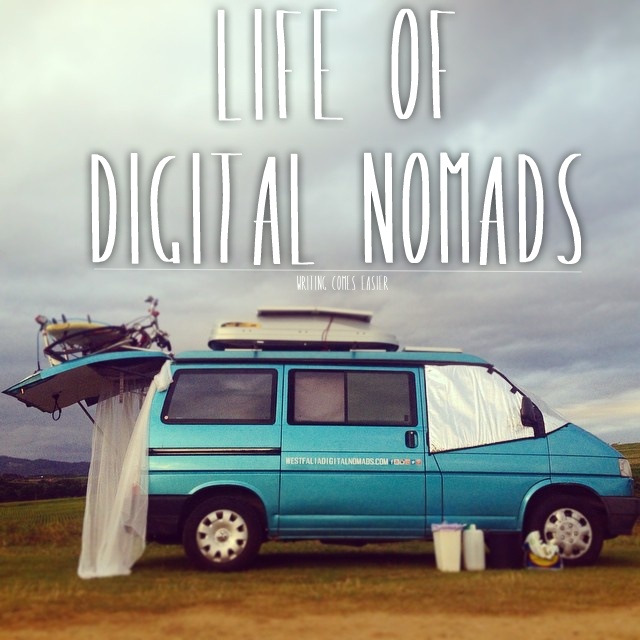
Do you miss something about stable life?
Oh, sure. There’s the comaraderie of having workmates. Of seeing the same friends every day. We get homesick for food sometimes. And baths… definitely long, luxurious baths.
On the other side, we don’t get interrupted or annoyed by coworkers or bosses. We work when we like and at our own pace. As long as we deliver to our deadlines, no one cares what we do in between. We get to meet and make new friends and explore cultures daily. But yeah. No baths. Grin.

Everything sounds just perfect, but I am sure that there ups and downs in a vanlife. What are the biggest struggles you guys face being location independent?
Definitely, there are downsides. It’s life, after all. With work: taking on too much; hitting a dry spot; clients who pay late; and keeping motivated whilst working on the dullest projects imaginable. With vanlife: two people in love, living together 24-7, in a small space can be trying. Especially on rainy days. Ha. The van itself has broken down, usually with the worst timing in the world. And we’ve been broken into twice. It’s not all roses, for sure. But for us, it is worth it.
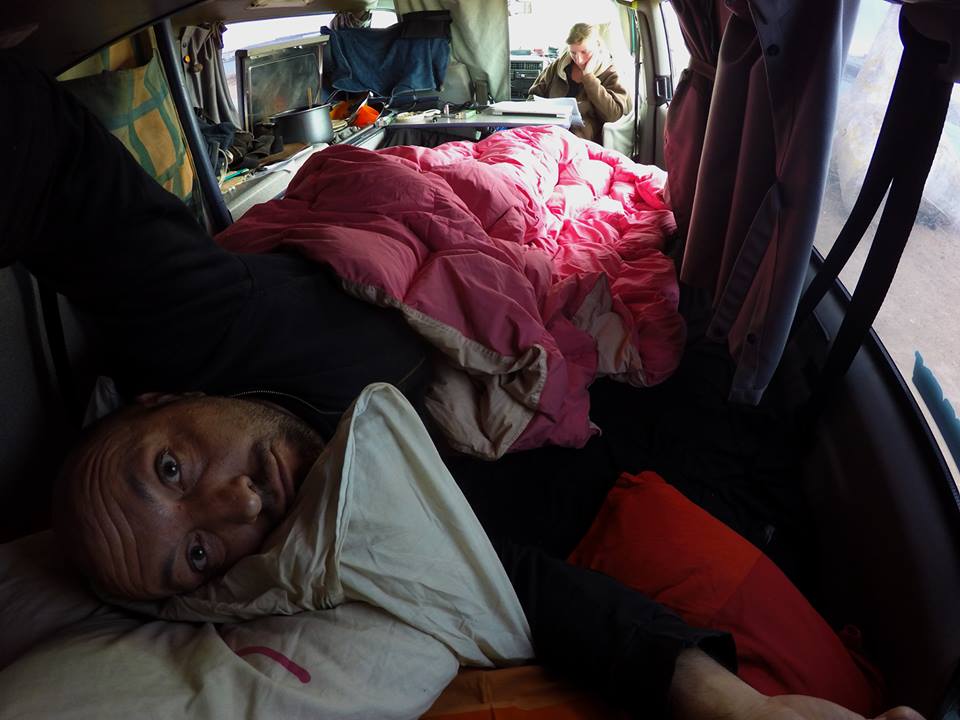
Could you give us a brief insight into the paperwork – is it easy to officially become a digital nomad? (TAX, accountancy etc)
As far as I know, there’s no such thing as a ‘digital nomad’ title you can use for taxes. ‘Freelancer’ or ‘private contractor’ are the most common terms. We’re in an odd place, tax-wise, like many nomads. We’d love to pay our taxes, but where? We’ve never stayed longer than a few months per country, not long enough for residency, for the last 4 years. We don’t take part in any of the ‘social services’ of those countries.
Our home countries might require a small amount, but we don’t make enough money (i.e. not a big company) for it to be a significant amount. I’m actually researching it at the moment- I’d like to pay taxes in the States- but no one seems to have information for people who live like we do.
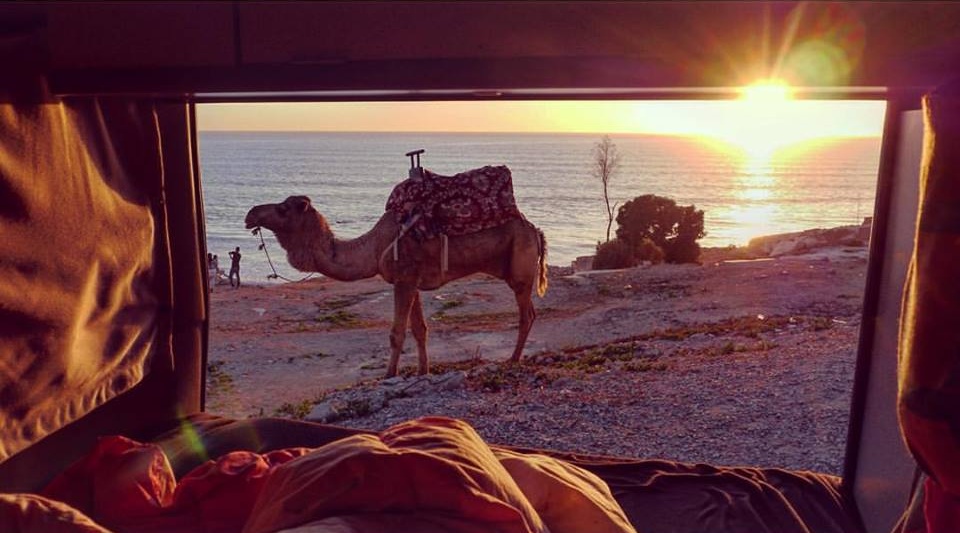
A piece of advice for digital-nomads-to-be?
You don’t need to buy a book or take a course from an ‘expert’ to learn how to become a digital nomad. Every thing that’s needed to gain that independence or grow in that new direction is completely possible. Becoming location independent, if that’s what you truly want, is up to you.
We are more than happy to answer any and all questions about the digital nomad or van life. Please don’t be shy and contact us!
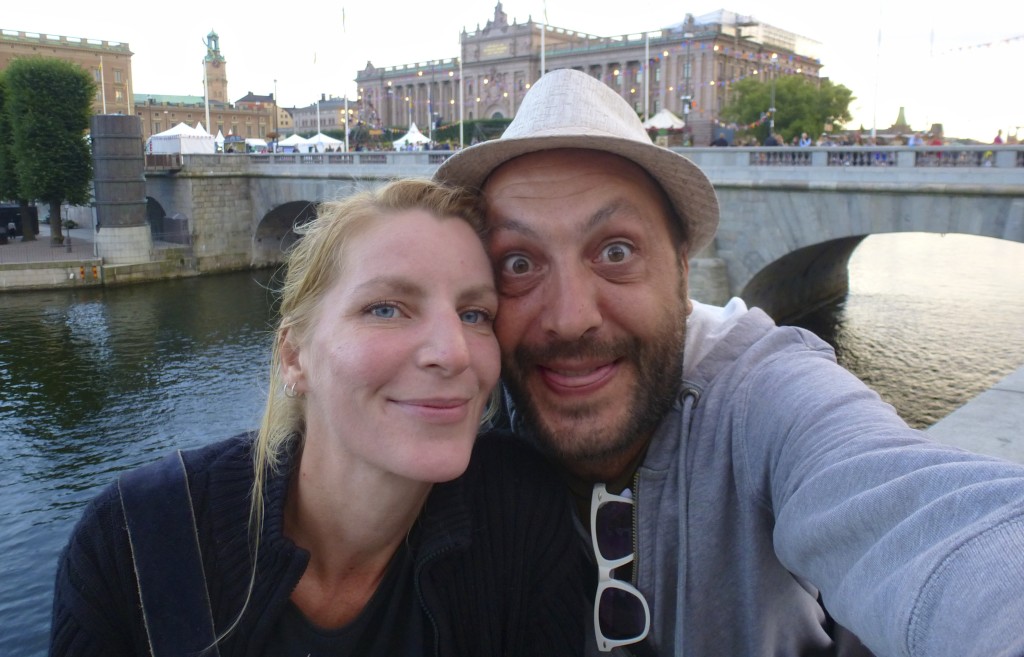
You can follow Mel and Armando on their Facebook, YouTube, Instagram, and Twitter.
All photos used in the article as a courtesy of Westfalia Digital Nomads.
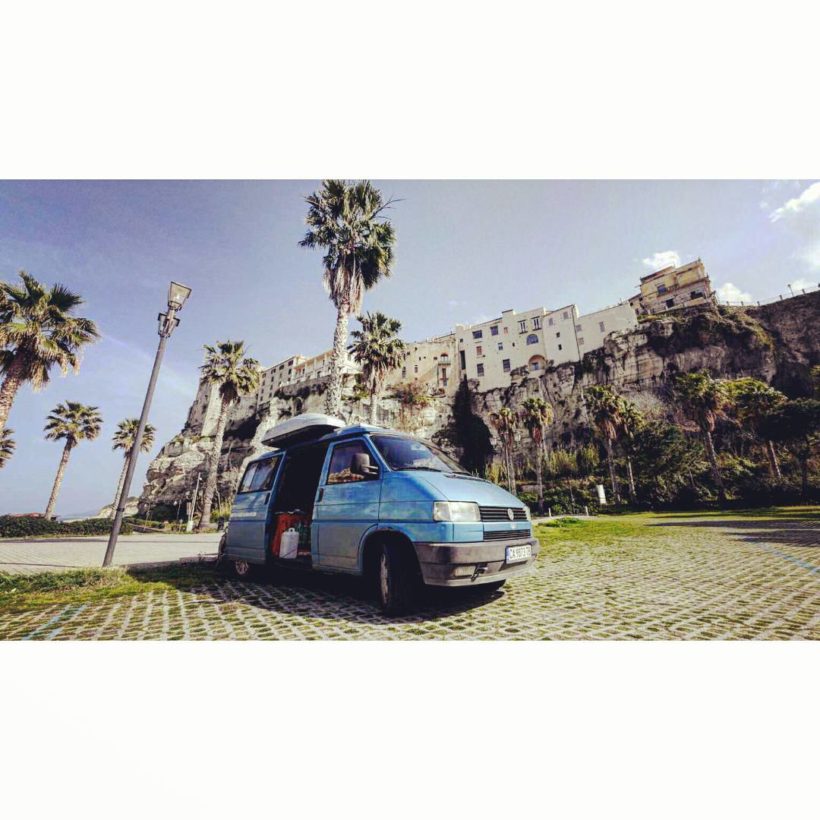


Doing what we want to do instead of what we have to do is more worthwhile. Life is too short and if we don’t enjoy it, then it’s all vanity. There are several way to find a living and if we do what we really want to do and make it a living, then our lives will surely be happy.
Being a digital nomad is some kind of living with no boundaries. Hence you can do want you want wherever you want without someone telling you to do what they want.